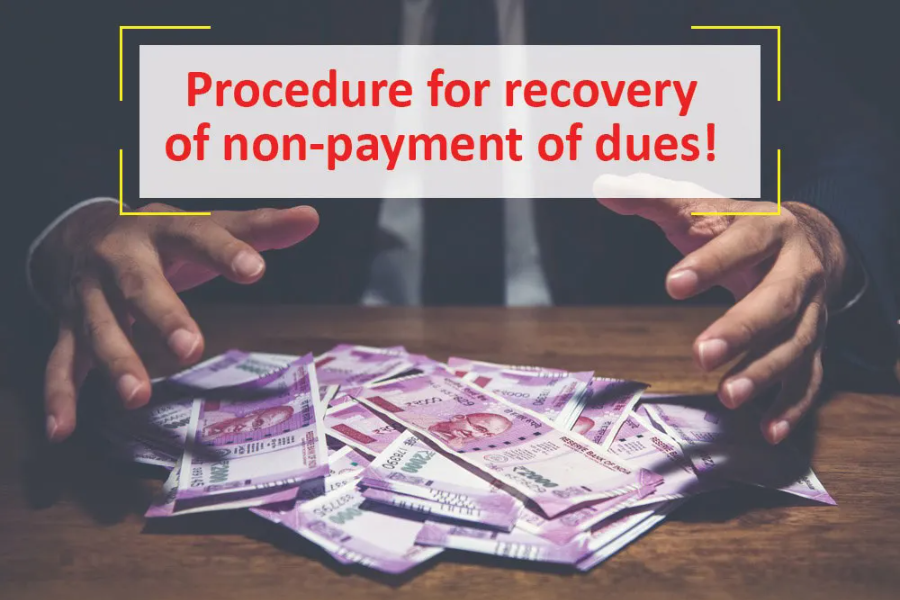Key Features:
- Non-payment recovery services are essential for businesses facing financial losses due to late payments, delinquent accounts, or default.
- Understanding the types and causes of non-payment is crucial in implementing effective recovery strategies.
- Non-payment can disrupt cash flow, increase debt expenses, and strain business relationships.
- Non-payment recovery services offer expertise in debt collection, improving cash flow management, and saving time and resources.
- Proactive measures such as credit checks, clear payment terms, and effective communication can prevent non-payment.
- Reactive approaches like negotiation, legal actions, and alternative dispute resolution methods help in recovering non-payments.
- Factors to consider when choosing non-payment recovery services include reputation, industry-specific expertise, cost structure, and compliance.
- Engaging reputable non-payment recovery services helps businesses recover outstanding debts and maintain financial stability.
Non-payment refers to the failure of a customer or client to fulfill their financial obligations within the agreed-upon terms. It can manifest in various forms, such as late payments, delinquent accounts, or even outright default. Non-payment poses a significant challenge for businesses across industries, impacting their financial stability and hindering growth.
When businesses experience non-payment, it can lead to a series of negative consequences. Firstly, cash flow is severely affected, making it difficult for companies to meet their financial obligations, such as paying employees, suppliers, and lenders.
Secondly, non-payment disrupts budgeting and financial planning efforts, making it harder for businesses to invest in growth initiatives or take advantage of new opportunities. Lastly, prolonged non-payment can erode profitability and undermine the overall financial health of a company, potentially leading to business closures or bankruptcies. That’s where non-payment recovery services came in!
Understanding Non-Payment

Definition and types of non-payment (e.g., late payments, delinquent accounts, default)
Non-payment refers to the failure of a customer or client to fulfill their financial obligations within the agreed-upon terms. It encompasses a range of situations, including late payments, delinquent accounts, and defaults.
Late payments occur when customers do not pay within the specified payment period. This can disrupt a business’s cash flow, as expected funds are delayed, affecting the ability to meet immediate financial commitments.
Delinquent accounts refer to situations where customers consistently fail to make payments on time, resulting in an accumulation of overdue amounts. This poses a higher risk to businesses, as the probability of full recovery decreases with prolonged delinquency.
A default represents the most severe form of non-payment, where customers completely fail to make payments or fulfill their financial obligations. The default can have severe consequences for businesses, resulting in significant financial losses and potential legal action to recover outstanding debts.
Read more, regarding the Importance of medical audit and discover how you can uncover hidden risks.
Common causes of non-payment (e.g., cash flow issues, disputes, insolvency)
Several factors contribute to non-payment, and businesses must be aware of these common causes:
- Cash flow issues: Customers may face cash flow challenges, which can lead to delayed or missed payments. Economic downturns, unexpected expenses, or poor financial management can impact a customer’s ability to meet payment obligations.
- Disputes: Disputes between businesses and customers regarding product or service quality, contractual terms, or unresolved issues can lead to non-payment. These disputes may prolong the payment process or result in partial or non-payment until the matter is resolved.
- Insolvency: If a customer becomes insolvent or files for bankruptcy, they may be unable to meet their financial obligations. In such cases, businesses often face challenges in recovering payments owed to them.
The financial impact of non-payment on businesses

Non-payment has a profound impact on businesses, affecting their financial stability and overall performance:
- Cash flow disruption: Non-payment disrupts the regular inflow of funds, causing cash flow issues for businesses. Without timely payments, companies may struggle to pay suppliers, meet operational costs, or invest in growth initiatives.
- Increased bad debt expenses: When non-payment occurs, businesses often need to classify these outstanding amounts as bad debts. This impacts financial statements, and profitability, and can require write-offs, leading to increased expenses.
- Opportunity costs: Non-payment prevents businesses from utilizing the funds they are owed. This restricts their ability to seize growth opportunities, invest in new projects, or expand operations.
- Strained relationships: Non-payment can strain business relationships, leading to mistrust and damaged reputations. It may hinder future business opportunities with the delinquent customer or create negative perceptions among other potential clients.
Importance of non-payment recovery services in mitigating financial losses
The significance of non-payment recovery services helps in mitigating financial losses for businesses. These specialized services focus on helping companies recover outstanding payments from delinquent customers or clients.
By employing expert strategies and techniques, non-payment recovery services play a crucial role in enhancing a company’s financial well-being and promoting sustainable growth.
One of the primary benefits of non-payment recovery services is their expertise in debt collection. These professionals possess in-depth knowledge of debt recovery laws, regulations, and best practices. By leveraging their expertise, non-payment recovery services can increase the chances of successful debt recovery, maximizing the amount of funds returned to businesses.
The Role of Non-Payment Recovery Services

Definition and functions of non-payment recovery services
Non-payment recovery services refer to professional services offered by specialized firms or agencies that assist businesses in recovering outstanding payments from delinquent customers or clients. These services encompass a range of activities and strategies aimed at maximizing the chances of successful debt recovery.
Debt collection
Non-payment recovery services employ various techniques and approaches to collect outstanding debts from delinquent customers. It may involve diplomatic negotiation, legal actions, or alternative dispute resolution methods, depending on the specific circumstances of each case.
Skip tracing
In cases where customers have disappeared or provided inaccurate contact information, non-payment recovery services utilize skip-tracing techniques to locate their whereabouts. It involves employing specialized tools and databases to track down debtors and reestablish communication.
Documentation and legal support
Non-payment recovery services assist businesses in preparing necessary documentation, such as demand letters or legal notices, and guide legal proceedings if required. They ensure compliance with debt collection laws and regulations while pursuing payment recovery.
Benefits of using non-payment recovery services for businesses

Engaging non-payment recovery services provided by medical billing companies can offer several benefits to businesses, helping them effectively address and mitigate the challenges posed by non-payment:
Expertise and specialized knowledge in debt collection
Non-payment recovery services possess extensive knowledge of debt collection laws, regulations, and best practices. Their expertise in negotiations, legal proceedings, and alternative dispute resolution methods increases the likelihood of successful debt recovery.
Their specialized skills and experience in handling non-payment cases are valuable assets for businesses seeking to recover outstanding debts.
Improved cash flow management
Timely recovery of non-payments ensures a steady inflow of funds, enhancing cash flow management for businesses. By partnering with non-payment recovery services, companies can expedite the recovery process and access funds that may otherwise remain tied up or go unrecovered.
This allows businesses to meet financial obligations promptly, maintain operations, and allocate resources more efficiently.
Time and resource savings
Pursuing non-payment cases can be time-consuming and resource-intensive for businesses, diverting valuable personnel away from core activities. Non-payment recovery services alleviate this burden by taking on the responsibilities of debt collection, documentation, and legal proceedings.
By outsourcing these tasks, businesses save time and resources, enabling their staff to focus on strategic priorities and productivity.
Read and Discover how Real Time Eligibility can effect patients experience.
Key Strategies and Techniques

Proactive measures to prevent non-payment
To minimize the occurrence of non-payment, businesses can adopt proactive measures that help prevent and mitigate the risks associated with late or non-payment. The following strategies are essential for establishing a solid foundation for payment management:
Thorough credit checks and screening of clients
Before entering into business relationships, conduct comprehensive credit checks to assess the financial stability and payment history of potential clients. This step helps identify any red flags or high-risk customers, enabling businesses to make informed decisions regarding credit terms and limits.
Clear and concise payment terms and conditions
Clearly define payment terms, including due dates, acceptable payment methods, and consequences for late or non-payment, in written agreements or contracts. Transparent payment terms minimize misunderstandings and provide a basis for resolving disputes should they arise.
Effective communication and relationship management
Establish open lines of communication with customers and maintain regular contact throughout the payment process. Maintain a professional and proactive approach to address any issues promptly and amicably. Building strong customer relationships fosters trust and encourages timely payment.
Is Credentialing worth it? Read Everything you can regarding ROI and how Credentialing can grow your buisness.
Reactive approaches to recovering non-payments

Despite preventive measures, businesses may still encounter instances of non-payment. In such cases, employing reactive approaches can help recover outstanding payments and protect the financial interests of the business.
Diplomatic negotiation and dispute resolution
Begin the recovery process by engaging in diplomatic negotiations with the delinquent customer. Seek to understand the reasons behind the non-payment and work towards finding mutually agreeable solutions. Effective communication, compromise, and a focus on preserving the business relationship can often yield positive results.
Legal actions and debt collection procedures
If diplomatic negotiation fails or the situation warrants more assertive action, consider pursuing legal remedies. Consult with legal professionals to understand the options available, such as sending formal demand letters, initiating legal proceedings, or engaging debt collection agencies.
Legal actions can exert pressure on delinquent customers and increase the likelihood of recovering outstanding debts.
Alternative dispute resolution methods
In situations where disputes arise regarding non-payment, alternative dispute resolution methods can provide a quicker and more cost-effective resolution than traditional litigation. Mediation or arbitration allows for an impartial third party to facilitate discussions and help reach a resolution that is mutually acceptable to both parties.
Factors to Consider when Choosing Non-Payment Recovery Services

Selecting the right non-payment recovery service provider is crucial for businesses seeking assistance in recovering outstanding payments. Several key factors should be considered to ensure that the chosen service provider is reliable, efficient, and aligned with the business’s needs.
Reputation and track record of the service provider
Before engaging a non-payment recovery service, thoroughly assess its reputation and track record in the industry. Research their online presence, read client testimonials or reviews, and seek recommendations from trusted sources.
A service provider with a positive reputation and a proven track record of successful debt recovery indicates their reliability and capability to handle non-payment cases effectively.
Industry-specific expertise and understanding
Consider whether the non-payment recovery service has industry-specific expertise and understanding. Different industries may have unique payment structures, regulations, or complexities.
It is advantageous to choose a service provider familiar with the specific dynamics of the business’s industry. This expertise enables them to navigate industry-specific challenges, understand common payment issues, and employ tailored strategies for recovery.
Cost structure and transparency
Evaluate the cost structure and transparency of the non-payment recovery service. Obtain detailed information about their fee structure, including any upfront costs, contingency fees, or additional charges that may be applicable.
Transparency in pricing ensures that businesses can accurately assess the potential financial impact of engaging the service provider. Additionally, clarity regarding the services included in the fee structure helps manage expectations and avoid any surprises down the line.
Compliance with legal and ethical guidelines
Ensure that the non-payment recovery service provider operates in compliance with legal and ethical guidelines. Debt collection practices are subject to regulations and laws that govern fair debt collection.
Verify that the service provider adheres to these guidelines and maintains ethical standards throughout the recovery process. Non-compliance can lead to legal repercussions for businesses and damage their reputation.
Conclusion
Non-payment recovery services play a crucial role in helping businesses address the challenges posed by non-payment and mitigate the associated financial losses. By understanding the nature of non-payment and its impact on businesses, organizations can appreciate the value of engaging in specialized recovery services.
Thorough credit checks, clear payment terms, and effective communication are proactive measures that businesses can take to prevent non-payment. However, even with these measures in place, businesses may still encounter instances of non-payment. In such cases, reactive approaches such as diplomatic negotiation, legal actions, and alternative dispute resolution methods come into play.









